Now We’re Good -Part Two
Hamid Rafieian , the CEO and co-founder of Karafs, which started the business in 2014 with Hamid Malek and Kaveh Fazaeli, said in an interview with Shanbe Magazine about this startup.
Read the first part from here.
-
What were the biggest mistakes you made along the way of growing?
We started development after a while.We had good revenue growth and hiring, but because of the mistakes we made, this positive growth process stopped. We were offered, for example, VAC work.
We spent a lot of energy on this and we thought we could make a lot of money this way, but after a while we came up with the idea that this was not our job, because I thought we needed some scam and we weren’t there.
For us, our brand was more important than our multiplier income. For example, we were told that before the user saw the product, he would first sign up and pay.
Canceling a membership in VAC is also very time-consuming and annoying. We did not accept this process and did not consider it ethical. More than 5 months were wasted.
We got out of there, though we counted on that revenue and added some power. But at the same time, we held meetings and we realized that we didn’t want to do that and we had to go on our own development plans.
So we expanded the ios version and took other steps and returned to our previous positive trend very soon. Karafs’s big jump was with the IOS version. This version was launched in 2018.
We didn’t have an IOS developer, and we had no money to give to an IOS developer who had a salary of up to 6 million Tomans. On the other hand, our users have been requesting an IOS version of our Instagram posts every day.
So we made a decision that I think was one of our best. So, out of the 60 million Tomans we received, we contributed more than 20 million Tomans to write this version and decided to hire an employee that was not an IOS developer to work with the IOS developing team, one day a week to learn the job and then be able to work with us as an IOS developer.
That was the year 2017 when Shahab Ebrahimi was added to our team and is now the product manager of Karafs diet.
However, in August 2017, Apple Store did not put our version in stock. But we introduced this version to our users using Enterprise and Sibapp accounts and our revenue doubled.
So we increased our personnels’ salary and added some more. We ended the year 2017 with eight people, but by the end of April 2018, we had 20.
In the fourth year, we formed a marketing team, and Sepehr Khadem was added to Karafs as our marketing manager.
-
As a CEO and your colleagues, what specific management tips do you implement in your team?
I think not having a hierarchy is one of the good things about our team. We have no boss and no hierarchy at all. We have a very transparent process in our team. All team members’ wages and salaries are clear and there is no ambiguity for the members.
-
How much is the company revenue now?
Last month there were about 220 million tomans.
-
Why is it so important for you to be so transparent?
One of my motivations for having my own business was to not have the bad experiences of working in traditional companies in my own company. For example working hours. We set aside the sensitivity of the working hours.
We usually have meetings every day from 11 am to 5 pm, and people only have to announce from the previous day that they are not coming tomorrow or arriving at a specific time. We also coordinate meetings and try to maintain order in these times.
-
It also has its own challenges.
Yes, there are even abuses, but its challenges are less than fixed time. It is important that the tasks are well defined. In that case, the forces must hand over their work.
-
Have you gained or studied these solutions through experience? Because there are small solutions that have big implications. But you do your job well and increase the satisfaction of your team.
We obsessively study these areas. While observing both Iranian and foreign experts and trying to use the experiences of others in how to build and develop a team.
We have relationships with experts many businesses, including Cafe Bazaar, Alibaba, Snapp, etc. and we try to learn from their management practices.
Also, we will not change or change it until a trend is hit. For example, we don’t have a CTO in the team right now because we haven’t felt the need to do so.
We do not claim to be the best but our method has so far been positive for our company and we will continue to do so.
-
You went ahead with Bootstrap and invested 60 million in a round. Another step you seem to have been in attracting capital; how much has it been?
We were aware of the financial group attracting capital and it was 1.5 billion Tomans.
-
How valued was Karafs for getting this capital?
24 billion Tomans.
-
And how much stock have you given up?
5%.
-
Back to the Bootstrap Method – How Important are for Businesses to First begin with Bootstrap?
It is crucial when and by what need to attract capital that it is not wasted. We brought our team by Bootstrap to 25, but sometimes we think that maybe if we had absorbed the second round of capital sooner, we would have had one billionTomans rather than 200 million Tomans a month.
Generally speaking, teams should not seek capital until are not mature enough to recognize themselves and their business.
It is also very important who the investor is. We started introducing Karafs to investors in May of 2018. Many investors did not want us, and we didn’t want many.
because it is important for us to know how much the person sitting at the table is able to communicate with and how much he / she knows the startup space.
Our experience of working with a second-round investor for many months has been positive so far, not just for us, but for Mentorship services and good communication.
Even in my opinion, mentorship and communication are more important than money itself, since money can also be borrowed from the bank.
-
Where does Karafs want to get to?
We have a big picture for Karafs and our goal is to get to the whole online health field where we have an online solution for every problem, that is, we will become a complete package that can meet many needs.
-
Have you laid out a roadmap for how long to reach such a position?
According to a 3 to 5 year plan, we are going to reach this position.
-
What exactly is Karafs doing now?
We provide calorie and diet programs and we have an application in the field of exercise that gives people exercise.
-
Calorie counting of foods are no easy task. Many of the foods on the Iranian table are unknown worldwide and their calories have not been measured. How did you measure the calories of Iranian foods?
One of the hardest things we did to get Karafs started was to prepare a food database. On the other hand, many Iranian foods were not measured for the amount of calorie.
Initially, I would make a list of 20 Iranian foods and give them to some nutrition consultants who were my friends, and it seemed like the end result.
We didn’t have the money to hire a nutritionist at the time, but now a nutritionist is our team member who specializes in calories.
Of course, the US FDA had released many calories from many foods and many foods could be extracted from them, but since many Iranian foods are not on the list, we were also sensitive to foods that we do not know accurately and in consultation with.
Even our nutritionist couldn’t figure out their calorie size, not to be listed. There are calorie databases of different foods right now, but we can’t confirm them.
-
What are some health opportunities that could be the start of a startup?
There is plenty of room for work in the medical field. However, there is a mafia in the market that makes it difficult for startups to work.
Of course, since we are not in the medical field, we have not encountered any problems so far. The field of sports is also an area that is left blank.
But the Iranian sports market, athletes and coaches are still very traditional and have less of an online approach.
There has not been much work done on gadgets in Iran, but it has a large market and remains somewhat neglected. Gadgets like smart glasses, health bracelets, etc. But no work has been done in this area.
-
Investors don’t seem to care about health.
Investors usually wait for a so-called market to turn into a big startup community, and then they start working. I feel that the majority of Iranian investors are not yet familiar with the concept of risky investment.
They are looking to invest 100 million Tomans for example and make 1 billion Tomans three years later. Such a profit does not come from every market.
Many markets are now empty because the profits of those markets are long term and investors are looking for short term profits
Meanwhile, Iranian investors sometimes want to be 100% sure of return on capital, high profits, and then take the lead.
However, if one is 100% sure of his / her idea and business, he / she will no longer need to divest and capitalize, as he can easily borrow money.
Now the idea of an online taxi is more likely to attract capital than Karafs. While it cannot capture one percent of its current market share with its powerfull rivals, the market has become attractive because of the large businesses in the area.
If Karafs grows, it will be an example of businesses that have worked differently and grown in a market that many are still left vacant. Therefore, if it experiences large growth, it will attract investors’ attention to this area.
-
Has Karafs also a rival?
We have some good competitors. Mankan is one of them that has grown well. Although much smaller than Karafs, it has plenty of room for growth.
Our other competitor is the “Boshghab” which has a good and professional product. I think if these businesses grow, the market will grow bigger and more and our motivation to continue to grow will increase.
-
You have another product called Karafs Diet? How much has it been welcomed?
Karafs’s philosophy is that it doesn’t tell the user what to eat. We tell the user how much and how much to eat from each food.
About 40% of users said we would give them a meal plan. So we developed the Karafs Diet product, which gives users a nutritional plan and delivers it smartly.
The user has the right to choose from several foods. We don’t show him foods that are not of interest to the user or if he is a vegetarian, we will show him Vegetarian food. This product also has about 120,000 installed.
-
I would like to ask you a few questions that relate to your attitude to your business and yourself, that is, to a little bit of your inner startes. What are your most important concerns right now? So what are the factors that make Hamid very worried?
One of my worries right now is the IOS version. Up to 45% of the revenue comes from this version now, but the problems with Being boycotted by Apple Store and so on are of great concern.
Because we may face a problem from overseas or internal filtering any time , about 45% of our revenue Go away. There is so much concern that we check the situation every two hours to see if there is a problem.
We have two solutions to solve this problem: one is to launch the WebApp version and the other is to launch an apparently Arabic language version.
Another major concern is inside the company. As the company grows, the issues of managing it become more complex. It is very difficult to maintain constructive relationships and to predict correctly. Of course, these are of growing concern, and sometimes are sweet.
-
Since you started Karafs until now, what personality or behavioral traits have you had during this time that you were hurting your business? I want to know what changes people make in the process and what have been the changes for you.
When you start out and help me grow and grow, you always want to do something that holds all the values that belong to you. That is, the business focuses on yourself, your field of thought, and your energy, and that’s a big disadvantage.
I had this behavioral attribute, but gradually I changed that behavior and came to the conclusion that the value of a successful product belongs to all members of a team and should not be labeled as one.
All team members must feel that they are involved in the value creation process. The other change I made was to accept the solutions offered by other counterparts, or to accept it if I was rejected as CEO.
It was very difficult for me to accept this at first, but I learned that in startups, because we do not have much money and cannot take too much risk, we have to sacrifice ourselves to be able to experience great growth.
-
What was the big fear you left behind?
Quitting traditional work was scary early on, but now I’m happy and good that I’m spending time on my own business. As we strive to create a good time for all members of the celery team. For example, we provide up to $ 250,000 a month for team members to go to the club and exercise, because job satisfaction is so important. Another of my fears was the loss of troops. We didn’t have much money to give to the troops, and they received multifaceted offers.
-
What did you do to keep the employees from leaving?
We used two solutions; one we gave stock employees. In fact, we are among the businesses that are have stock options program.
About 15 percent of Karafs stock now belongs to our employees that were added to the team after the founders. We will give 5% more to the members
Another solution was to create a work environment where our forces could withstand the least pressure and cooperate with satisfaction.
And we have a bright future for them. Our transparency was also impressive, and the merits are that people trust you and stay with you.
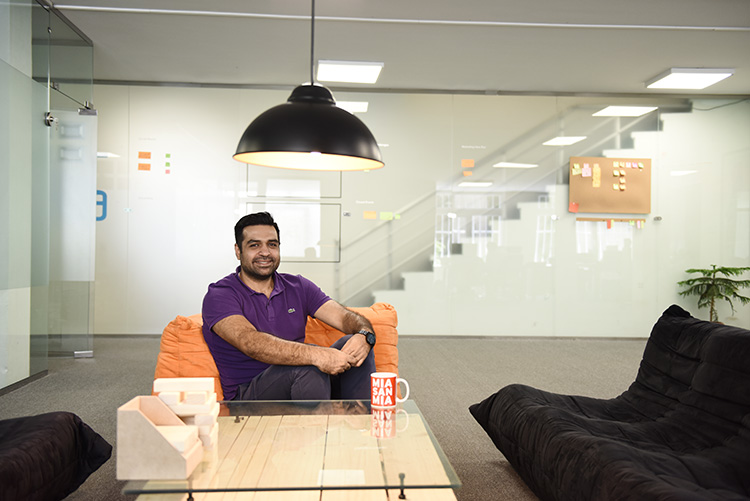


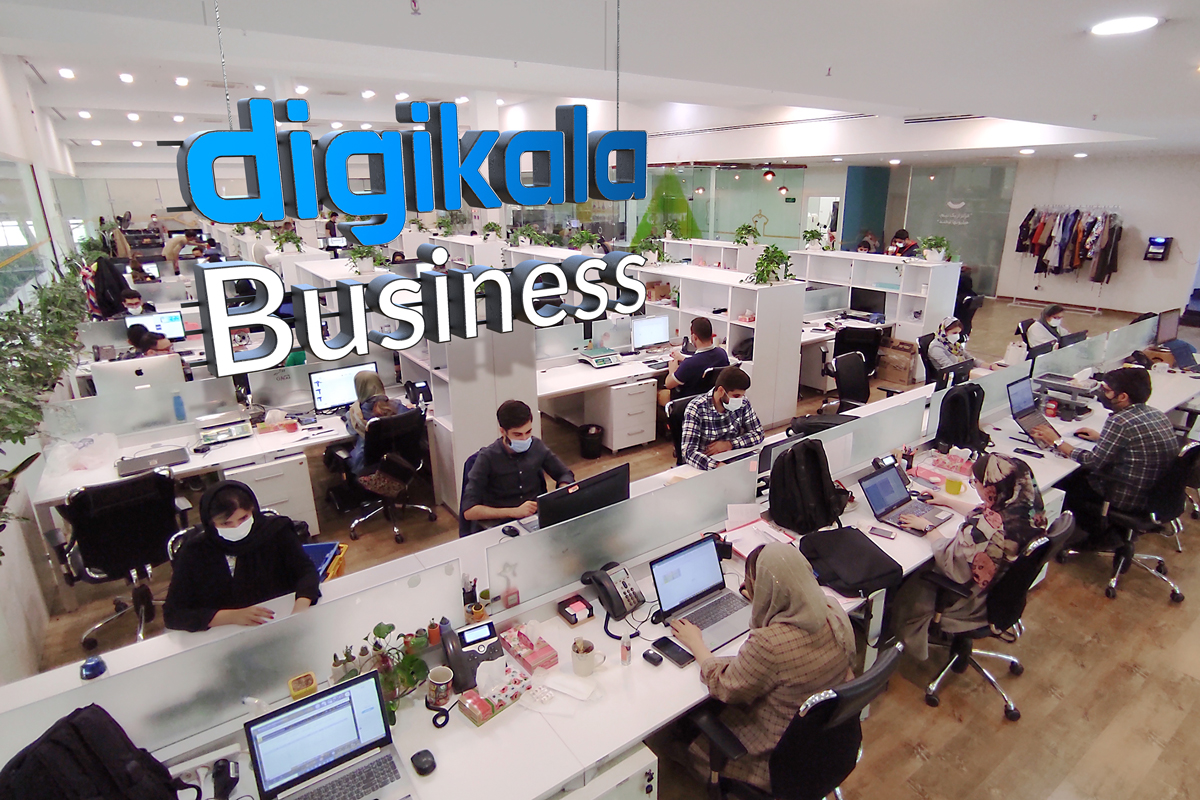


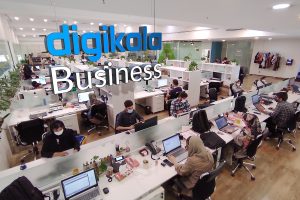
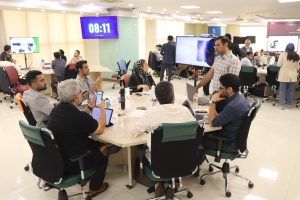
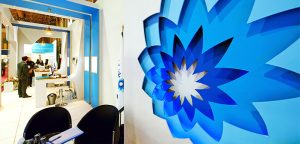
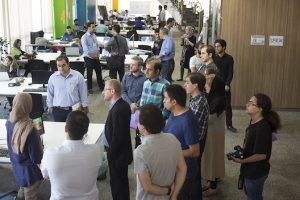


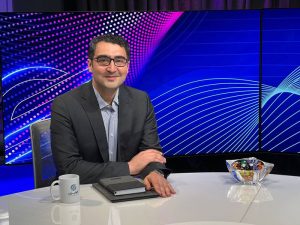

Post Comment